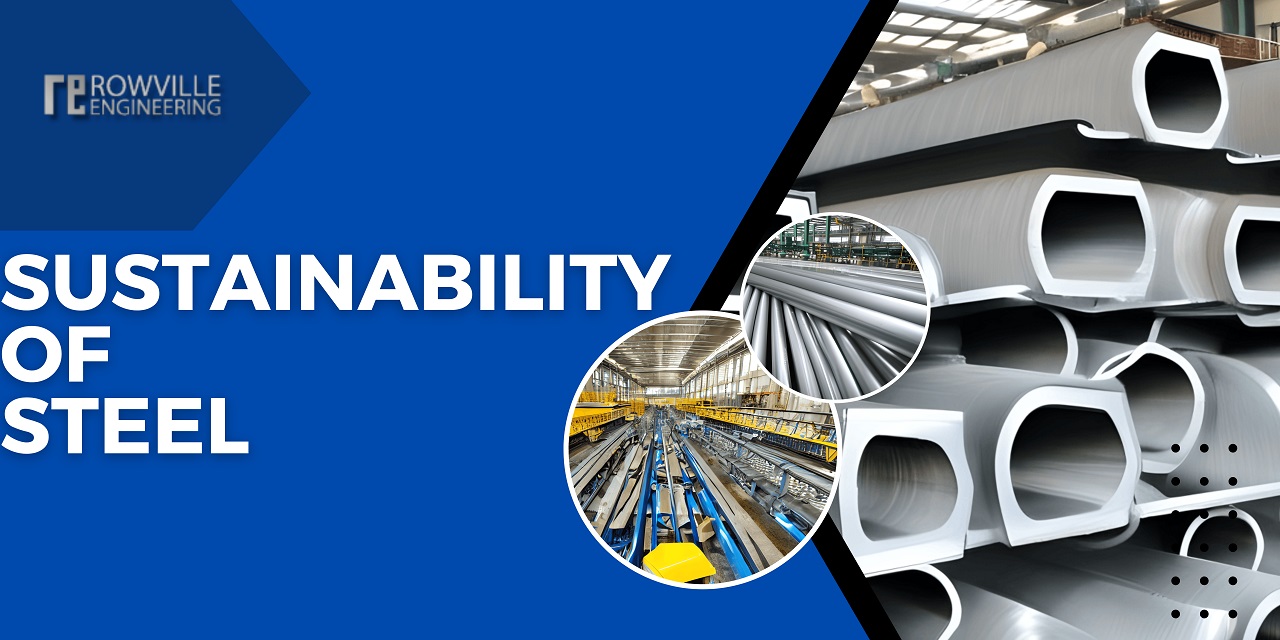Sustainability of Steel
Steel is a versatile and essential material that is used in countless products and applications around the world. Steel is critical to modern society, from cars and appliances to buildings and infrastructure. However, as the world becomes more aware of the environmental impact of industrial processes, the question of sustainability in steel production has become increasingly important.
Published On:31-05-2023

What is Sustainable Steel
So, what exactly does it mean for steel to be sustainable? Essentially, sustainability in steel production refers to the ability to produce steel to minimise environmental impact, conserve resources, and meet the needs of present and future generations. This involves several different factors, including energy efficiency, carbon emissions, waste reduction, and social responsibility.
Reducing Carbon Footprint
One of the biggest challenges facing the steel industry when it comes to sustainability is reducing its carbon footprint. Steel production is a highly energy-intensive process and the use of fossil fuels such as coal and natural gas in the production of steel results in significant greenhouse gas emissions. To address this issue, many steelmakers are exploring alternative sources of energy, such as renewable energy from wind or solar power. Additionally, there are efforts underway to develop new technologies that can reduce the amount of carbon dioxide emitted during the steel production process.
Reducing Waste and Conserving Resources
Another important aspect of sustainability in steel production is reducing waste and conserving resources. Steel is one of the most recyclable materials in the world, and much of the steel produced today is made from recycled scrap. By using recycled steel, manufacturers can reduce the amount of raw materials needed to produce new steel and the amount of waste generated during production.
Additionally, some steelmakers are exploring the use of byproducts from other industries as a source of raw materials, further reducing the need for virgin materials.
social responsibility
Finally, social responsibility is an important part of sustainability in steel production. This involves ensuring that workers in the industry are treated fairly and that communities around steel mills are not negatively impacted by pollution or other environmental factors. Many steelmakers are working to improve the safety and well-being of their workers, as well as to engage with local communities to address environmental concerns.
conclusion
In conclusion, sustainability in steel production is a complex and multifaceted issue. However, as the world becomes more focused on environmental stewardship, the steel industry is increasingly recognizing the need to adopt sustainable practices. By reducing carbon emissions, conserving resources, and promoting social responsibility, the steel industry can help to create a more sustainable future for us all.